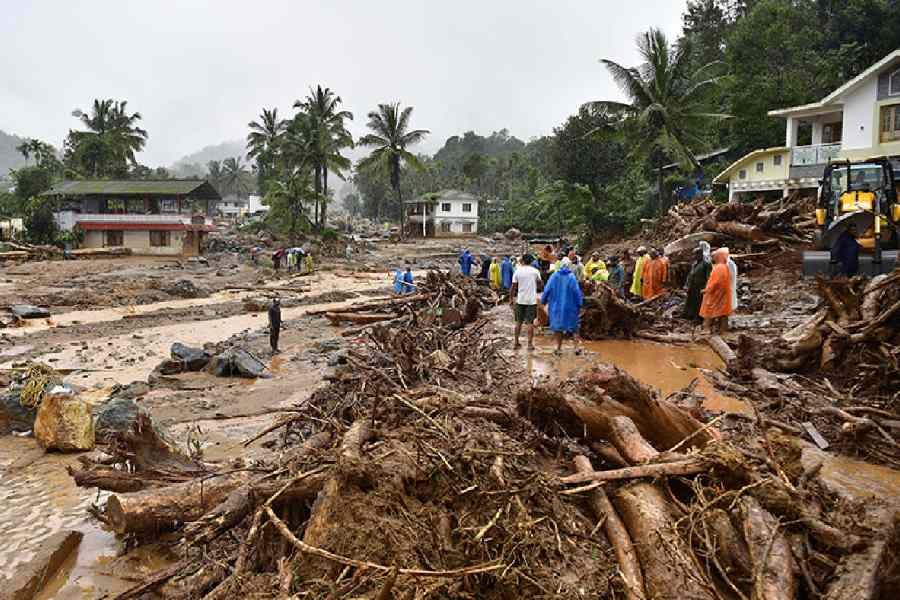Some or other part of India faced some form of extreme weather event during 93 per cent of the days in the first nine months of this year, a report released by an environment organisation on Friday revealed.
Experts attributed the trend — much worse compared with previous years — to global climate change.
“In 2024, India faced extreme weather events on 93 per cent of the days in the year’s first nine months — 255 out of 274 days — marked by heat and cold waves, cyclones, lightning, heavy rain, floods and landslides,” the report, titled “Climate India 2024: An assessment of extreme weather events”, says.
Madhya Pradesh experienced extreme weather on 176 days, the highest in the country, says the report, published by the Centre for Science and Environment (CSE). Kerala recorded the highest fatalities at 550, followed by Madhya Pradesh at 353 and Assam at 256.
Andhra Pradesh saw the highest number of houses damaged (85,806) while Maharashtra, which witnessed extreme events on 142 days, accounted for over 60 per cent of the affected crop area nationwide. Bengal lost crops across 2 lakh hectares of land to disasters.
“These record-breaking statistics reflect the impact of climate change, where events that used to occur once every century are now happening every five years or even less,” CSE director-general Sunita Narain said, launching the report.
“This frequency is overwhelming the most vulnerable populations, who lack the resources to adapt to this relentless cycle of loss and damage.”
Narain underlined the importance of having an appropriate global deal on nations’ financial commitments to combat climate change during the Baku climate summit, which begins on Monday.
“This report is a warning, and a call for urgent action that is required to mitigate climate change. Without combating climate change at a meaningful scale, today’s challenges will only worsen tomorrow,” she said.
A recent UN report, “Adaptation gap report 2024”, too emphasised that climate impacts are intensifying and urged nations to dramatically increase their fund commitments to counter the trend.
The CSE report said the extreme weather events during the first nine months of this year had “claimed 3,238 lives, affected 3.2 million hectares (mha) of crops, destroyed 235,862 houses and buildings” in India.
In comparison, the first nine months of 2023 recorded extreme weather on 235 of 273 days (86 per cent) with 2,923 deaths, 1.84 mha of crops affected, and 80,293 houses damaged.
The actual situation may be even worse, CSE experts associated with the study said.
“It is very likely that even these reported damages are an underestimation because of incomplete data collection on event-specific losses, particularly relating to public property and crop damage,”
one of them said.
The report said that 2024 had already sounded several climate warnings, January being India’s ninth driest since 1901, February recording the country’s second-highest minimum temperature in the last 123 years, and May witnessing the fourth-highest mean temperature on record. July, August and September registered their highest minimum temperatures since 1901.
The report shows that while monsoon rain caused 1,021 deaths across 32 states nationwide, floods killed 1,376 people.
“While heat waves claimed 210 lives, the data does not reflect the extended health impacts of prolonged high temperatures on the well-being of people,” said Rajit Sengupta, an expert associated with the study.
“Twenty-seven states and Union Territories saw a rise in extreme weather days in 2024, with Karnataka, Kerala and Uttar Pradesh each experiencing 40 or more additional days of such events,” said Kiran Pandey, CSE programme director.










